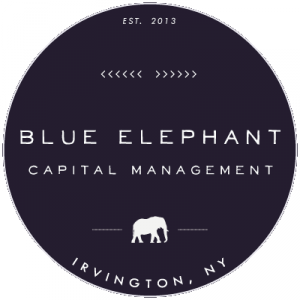 The recent explosion in peer-to-peer lending these days can be hard to explain to the general public, but the story behind the tremendous growth is a simple one: peer-to-peer lending became popular as a means of making small interest-bearing loans to individuals who typically would not receive a loan at a regular bank as credit and lending terms tightened. The accelerated growth in these P2P lending platforms has drawn the attention of both banks and specialty finance industry heavyweights who view it as a new vertical for loan assets. Early on it looked like financial industry biggies were going to squeeze out smaller lenders, but as the space grows it appears thereʼs enough demand for everyone.
The recent explosion in peer-to-peer lending these days can be hard to explain to the general public, but the story behind the tremendous growth is a simple one: peer-to-peer lending became popular as a means of making small interest-bearing loans to individuals who typically would not receive a loan at a regular bank as credit and lending terms tightened. The accelerated growth in these P2P lending platforms has drawn the attention of both banks and specialty finance industry heavyweights who view it as a new vertical for loan assets. Early on it looked like financial industry biggies were going to squeeze out smaller lenders, but as the space grows it appears thereʼs enough demand for everyone.
For consumers, the allure of P2P is pretty clear. If your credit is passable but not fantastic you have a shot at negotiating a loan with a real person and not a faceless away from the task based economies, which have also emerged with the advent of the global internet. Unlike micro-finance which often targets low income individuals in an effort to help them become more financially secure, the biggest P2P lending platforms have gone out of their way to avoid what could be called the subprime lending market, and focus on people who have passable to good credit but donʼt or havenʼt qualified for a more traditional loan. This focus has attracted the interest of yield-starved institutions and private funds that now have access to a new class of credit opportunities.
Blue Elephant Capital Management is one private fund capitalizing on this trend by actively purchasing and managing a highly curated portfolio of these loans. The fund currently has approximately $30 million AUM; its portfolio has a weighted average FICO score of 715, with approximately 60% invested in three-year loans and the remainder in five-year notes. Blue Elephant is one of only a dozen institutions on the Prosper platform, operating in much the same way a bank would when holding a portfolio of loans. Blue Elephant recently decided to secure additional funding from family offices and high net worth individuals by engaging the GrowthCap team to manage its capital raise on the GrowthCap platform.
Right now, lending interest rates across the different platforms hover around 4-7% for creditworthy borrowers and increase slightly for those with less optimal credit scores. That makes the rates for these loans significantly lower than even the best credit card terms, and with approvals that take only a few minutes, the process is more welcoming than an afternoon spent with a bank loan officer.
Other funds are getting into the act, Marshall Wace LLP, one of Europeʼs biggest hedge fund managers, will launch a portfolio investing in peer-to peer loans through a closed-ended fund that will be offered on the London Stock Exchange. Marshall Wace has more than $17 billion in assets, and started a peer-to-peer lending business in late 2013. Last month it announced plans to buy U.S. firm Eaglewood Capital Management LLC, which will run the new fund. Marshall Wace will also invest in the Eaglewood Income Fund, which invests in the Lending Club platform.
Finance interest in these platforms has gotten so large that both Prosper and Lending Club have increased the hurdles to buying up loans too quickly in an effort to maintain the diversity of lenders. Prosper recently finished a $70 million fundraising round led by Francisco Part- ners, a private equity firm, with Institutional Venture Partners (IVP) and Phenomen Ventures participating. That company is now worth $145 million, and a portion of the funds raised will go to maintaining the diversity of the platform.
Even with those efforts, P2P is ultimately part of the rapidly growing shadow banking sector and the extent to which private funds and large institutions play in these pools is catching the attention of regulators. Regulators in the US still havenʼt decided what they think about P2P lending, the responses are somewhat scattershot and formal guidance is lacking. This is the same approach theyʼve taken to crowdfunding in general, coupled with a lot of warnings about widespread fraud. Opalesque has previously spoken with crowdfunding platform owners who make a strong counterpoint – they said the same things about E*TRADE and eBay.
Yet, some signs are troubling, like the growing securitization of P2P loans which are now bundled and offered to a range of investors as seen with mortgages and student loans. History tells us that rarely ends well. However, the sheer fact that (in some cases at least), these loans are made between actual individuals could make the default recourse a little less draconian and a little more honest.
Story Credit: Written by Bailey McCann, Opalesque Private Equity Strategies, in collaboration with GrowthCap.
Discover unique insights from growth investors and leading executives.
Sign up for our weekly newsletter.